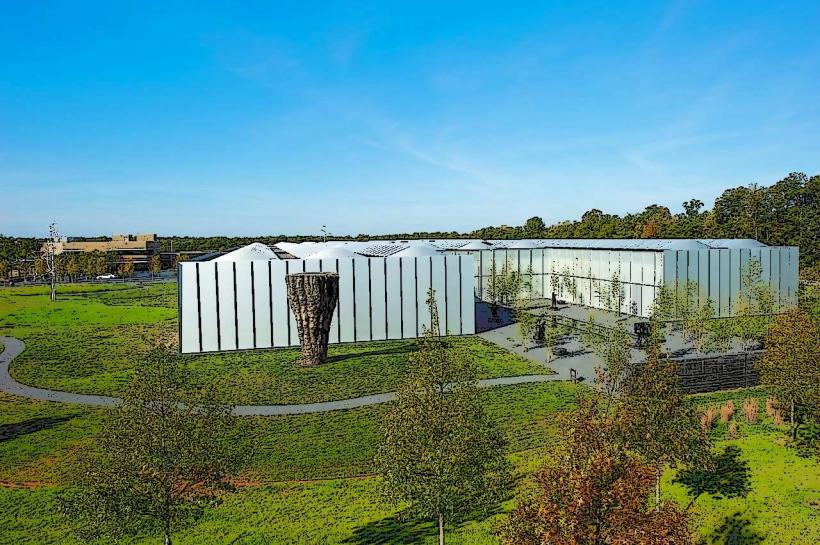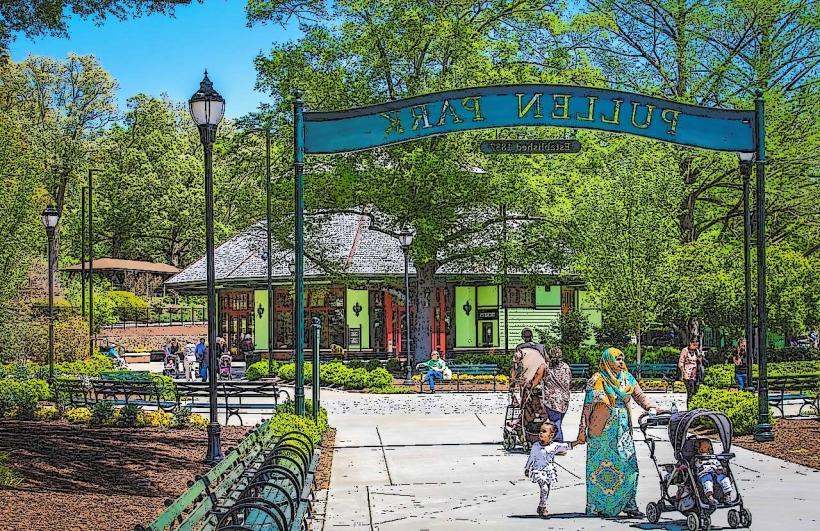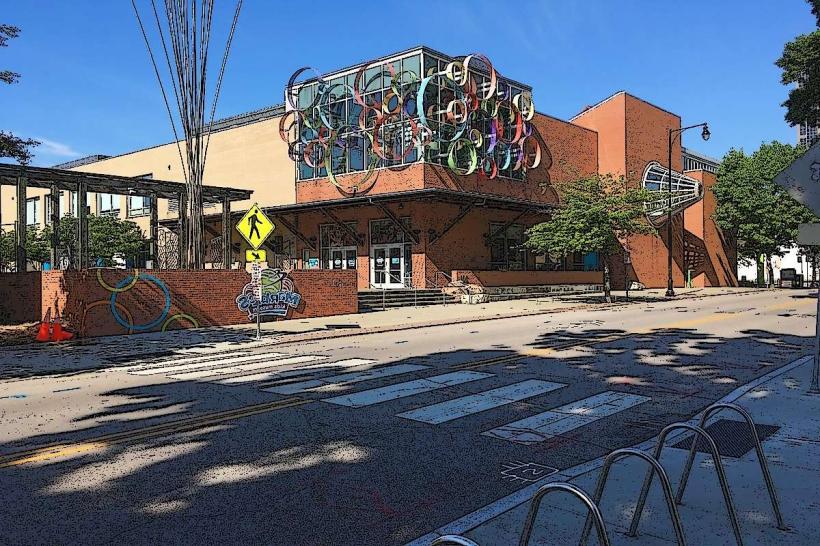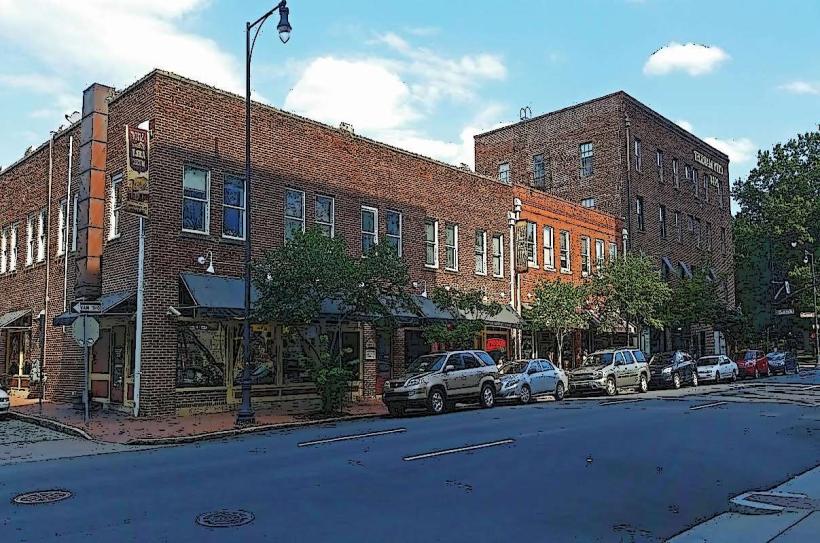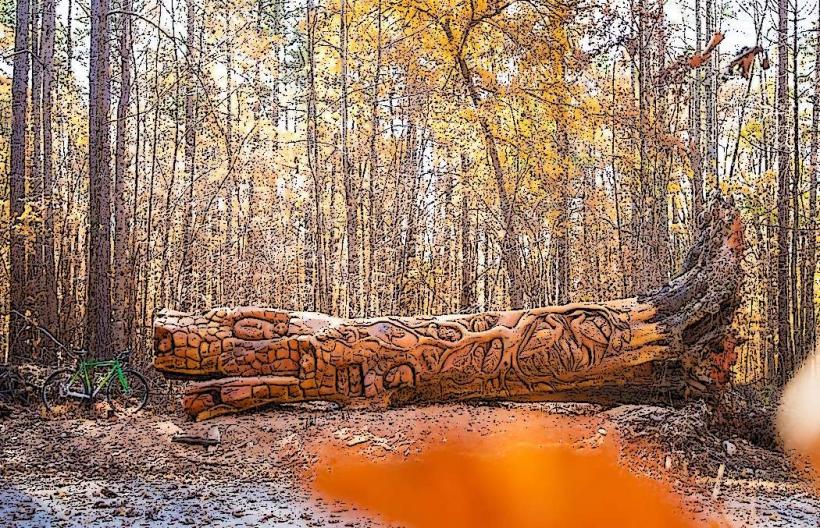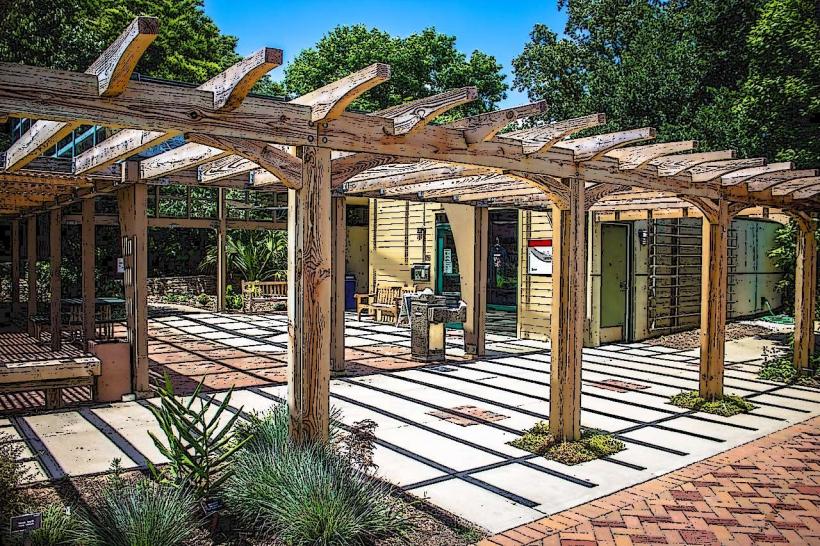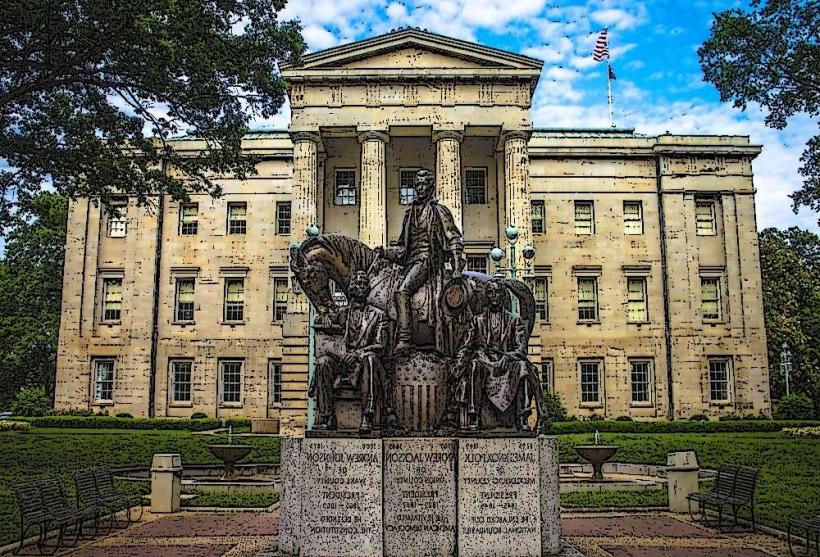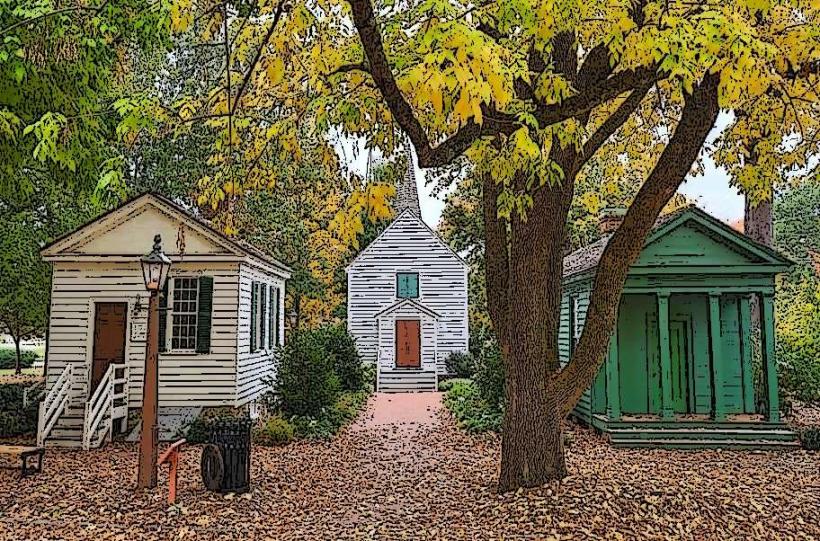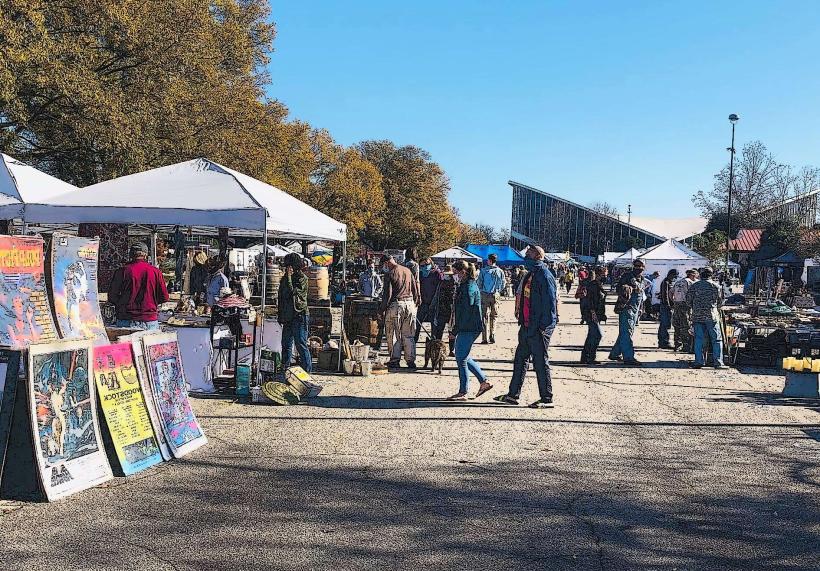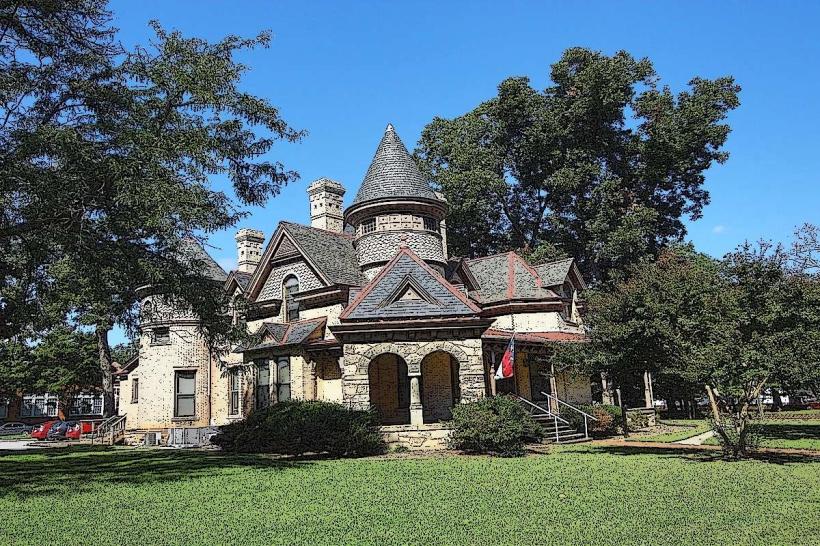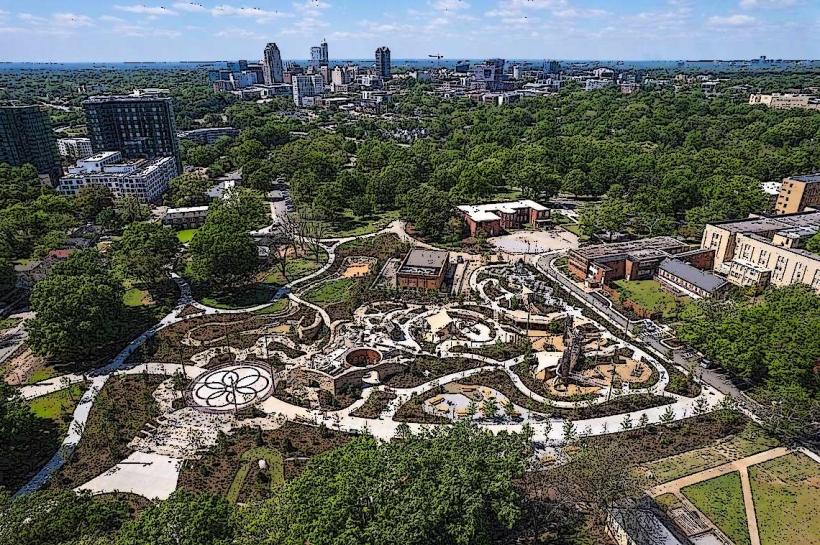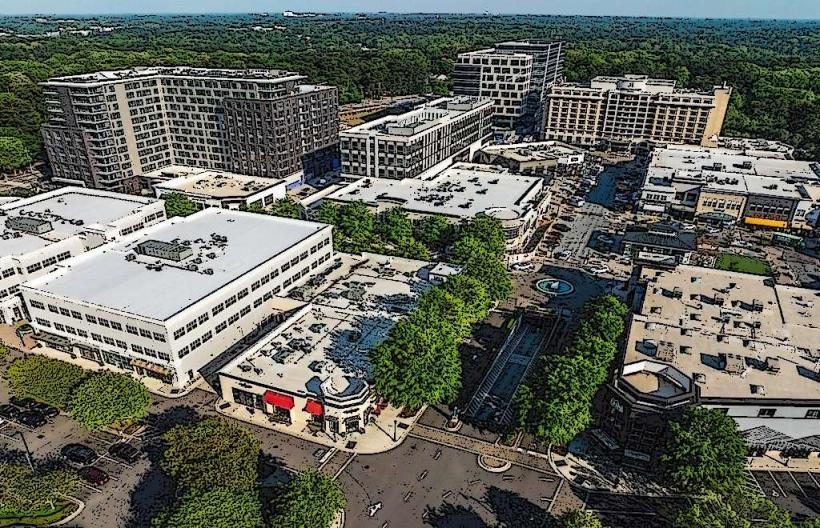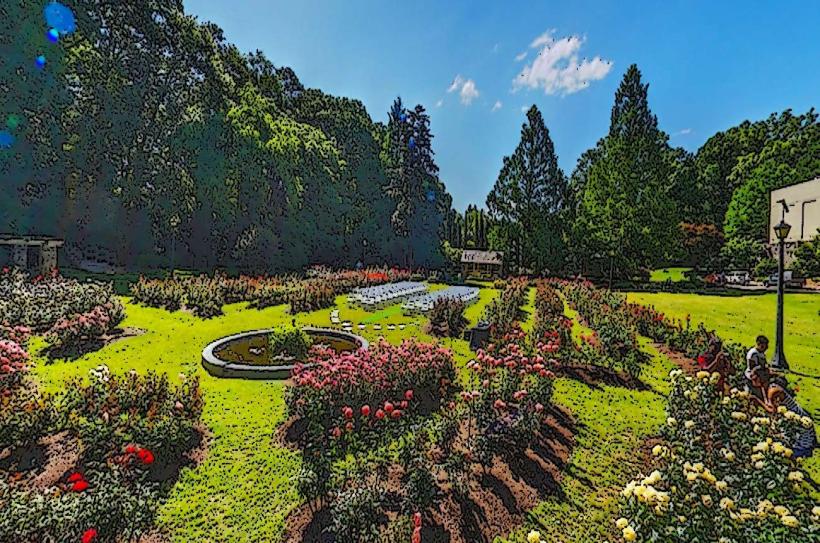Information
Landmark: Museum of the History of North CarolinaCity: Raleigh
Country: USA North Carolina
Continent: North America
Museum of the History of North Carolina, Raleigh, USA North Carolina, North America
The Museum of the History of North Carolina is located in Raleigh, North Carolina, USA. It documents the state's past through exhibits and collections.
Visual Characteristics
The museum building is a multi-story structure constructed primarily of brick. Its architectural style is neoclassical, featuring a prominent portico with columns. The exterior color is a muted red brick with white trim around the windows and cornices.
Location & Access Logistics
The museum is situated in downtown Raleigh at 5 East Edenton Street. It is approximately 0.5km East of the central business district. On-site parking is limited; visitors are advised to use public parking garages in the vicinity, such as the Municipal Parking Deck located 0.2km West. Several GoRaleigh bus routes serve the downtown area, with stops within a 0.3km radius of the museum.
Historical & Ecological Origin
The building was constructed in 1914 and originally served as the Supreme Court of North Carolina. It was designed by architect Frank P. Milburn. The building was later repurposed to house the Museum of the History of North Carolina.
Key Highlights & Activities
Exhibits cover North Carolina's history from pre-colonial times to the present. Specific displays include artifacts from the Civil War, the Civil Rights Movement, and the state's agricultural heritage. Interactive elements are present in several galleries. Educational programs and special events are scheduled throughout the year.
Infrastructure & Amenities
Restrooms are available on each floor. Limited seating is provided within exhibit areas. Cell phone signal (4G/5G) is generally consistent within the building. No food vendors are located within the museum; however, numerous dining establishments are present in the surrounding downtown area.
Best Time to Visit
Weekdays, particularly Tuesday through Thursday mornings, typically have lower visitor numbers. The museum is open year-round. No specific tide or weather conditions affect access or experience.
Facts & Legends
A notable historical oddity is the preservation of the original courtroom within the museum, which can be viewed as part of the permanent exhibits. This space retains much of its original architectural detail and serves as a tangible link to the building's former judicial function.
Nearby Landmarks
- North Carolina State Capitol (0.3km West)
- North Carolina Museum of Natural Sciences (0.4km West)
- North Carolina Museum of Art (3.5km West)
- Moore Square (0.2km Southeast)
- Raleigh City Museum (0.1km Southwest)

